What Is A Plumbing Contractor? Duties & How To Become A Plumber
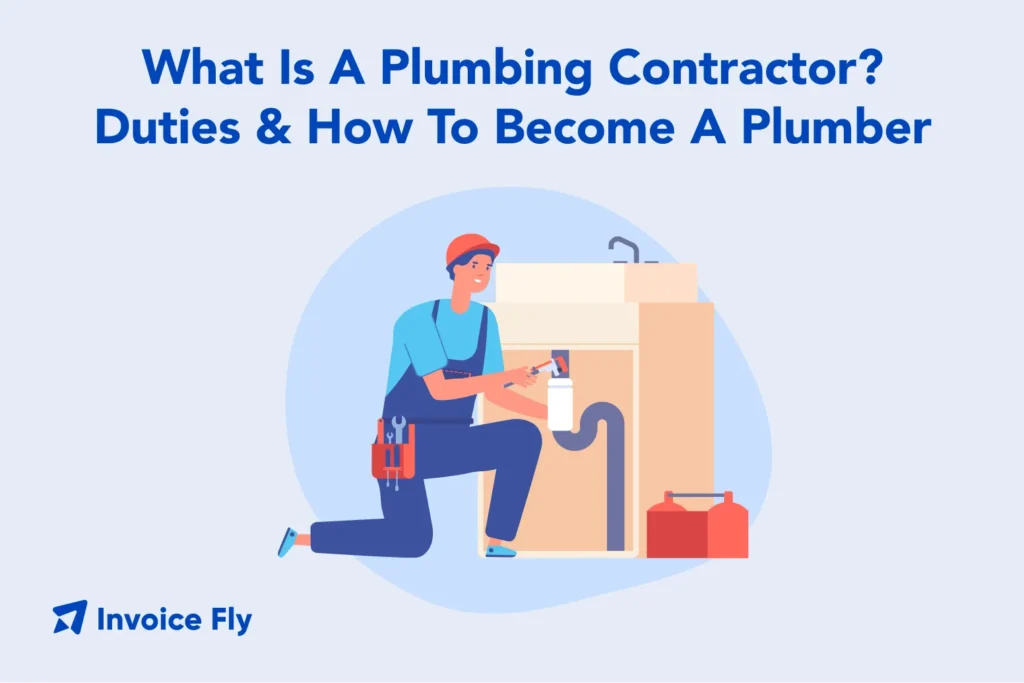
Table of Contents
Plumbing contractors are the professionals who make sure water flows properly in homes, businesses, and other buildings. They install and repair pipes, water systems, and fixtures like sinks, showers, and toilets. Many plumbing contractors also manage teams of plumbers and handle larger projects such as new construction or commercial plumbing systems. If you’re interested in becoming one, learning what a plumbing contractor does and how to get your license is the first step.
In this guide, we’ll cover what plumbing contractors do, how to get started in the trade, and what it takes to build a successful plumbing career.

Need tools to run your business better? Try Invoice Fly’s Business Reports to track performance and make smarter decisions!
Get Started with Invoice Fly’s Software
Invoice Fly is a smart, fast, and easy-to-use invoicing software designed for freelancers, contractors, and small business owners. Create and send invoices, track payments, and manage your business — all in one place.
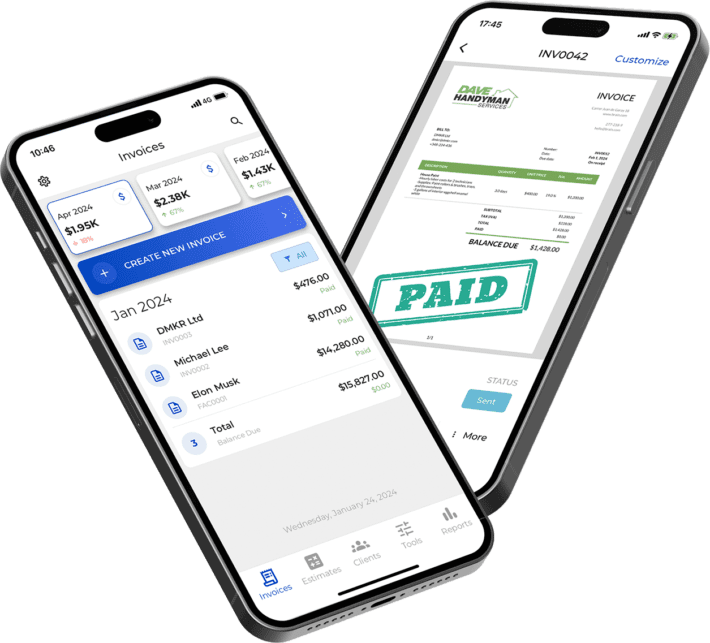
What Is a Plumbing Contractor?
A plumbing contractor is a licensed professional who installs, repairs, and maintains water systems and piping in all kinds of buildings. Unlike a plumber who may work for someone else, a plumbing contractor is typically self-employed or manages a team. They oversee full projects from blueprint to final inspection.
According to the Bureau of Labor Statistics, experienced plumbers can become contractors after gaining work experience and passing licensing exams. Some states require master plumber status before issuing a plumbing contractor license.
Plumbing contractors typically specialize in:
- Residential Plumbing: Homes, apartments, remodels.
- Commercial Plumbing: Offices, restaurants, schools.
- Industrial Plumbing: Factories, plants, and warehouses.
Want to know how this ties into tax setup? Check out our guide on 1099 independent contractors.
What Does a Plumbing Contractor Do?
The job involves much more than fixing leaks. Here are some of the core responsibilities:
- Project Planning Contractors read blueprints, estimate costs, gather materials, and plan timelines.
- Installation Work From full piping systems to water heaters and plumbing fixtures, contractors handle both rough-ins and final setups.
- Troubleshooting & Repairs They diagnose and fix plumbing problems, including broken pipes, leaks, and water pressure issues.
- Code Compliance Plumbing contractors ensure all work meets state and local building codes. This helps pass inspections and protects homeowners.
- Team Supervision Contractors manage apprentices and other plumbers, assign tasks, and maintain quality control.
- Customer & Business Management They bid on jobs, write quotes, schedule appointments, communicate with clients, and handle invoicing.
Common Residential Plumbing Services
Residential plumbing contractors provide essential services to homeowners and property managers:
- Installing and repairing water heaters
- Fixing leaky faucets and pipes
- Unclogging drains and sewers
- Installing new fixtures during bathroom or kitchen remodeling
- Replacing old pipe systems
- Installing garbage disposals and dishwashers
- Water pressure adjustments
- Winterizing and de-winterizing plumbing systems
Tip: Learn how to stay profitable with our guide on how to price plumbing jobs.
Commercial Plumbing Projects
Commercial plumbing contractors tackle bigger, more complex projects:
- Installing plumbing systems in new commercial buildings
- Maintaining plumbing in office buildings and retail spaces
- Installing commercial-grade water heaters and boilers
- Setting up industrial sinks and specialized equipment
- Managing multi-story building plumbing systems
- Installing fire suppression sprinkler systems
- Handling grease trap installations in restaurants
Commercial work often requires specialized knowledge and equipment. The scale is larger, the regulations are stricter, and the stakes are higher.
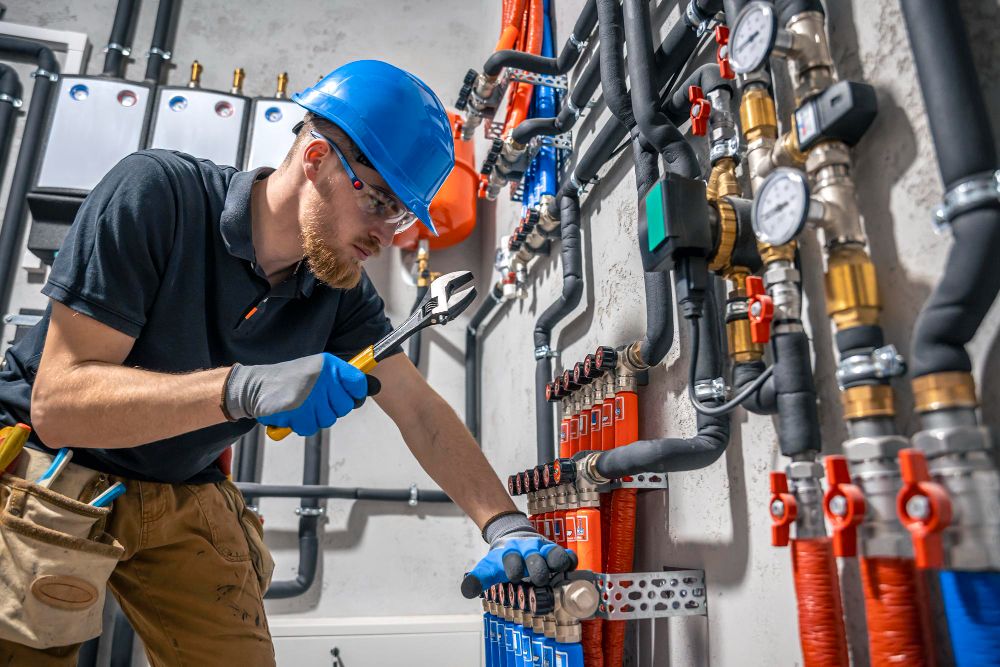
Emergency Repairs and Maintenance
Emergency plumbing repairs are a major part of the business for many contractors. When pipes burst, sewers back up, or water heaters fail, property owners need immediate help. That’s why any contractors offer 24/7 emergency services:
- Burst pipe repairs
- Severe leak fixes
- Backed-up sewage systems
- No hot water emergencies
- Frozen pipe thawing
- Gas line emergencies
Many plumbing contractors offer 24/7 emergency services, which can be highly profitable but also demanding. Having the right plumbing contractor insurance protects your business when handling emergency situations.
To protect your business in these high-risk jobs, check out plumbing contractor insurance.
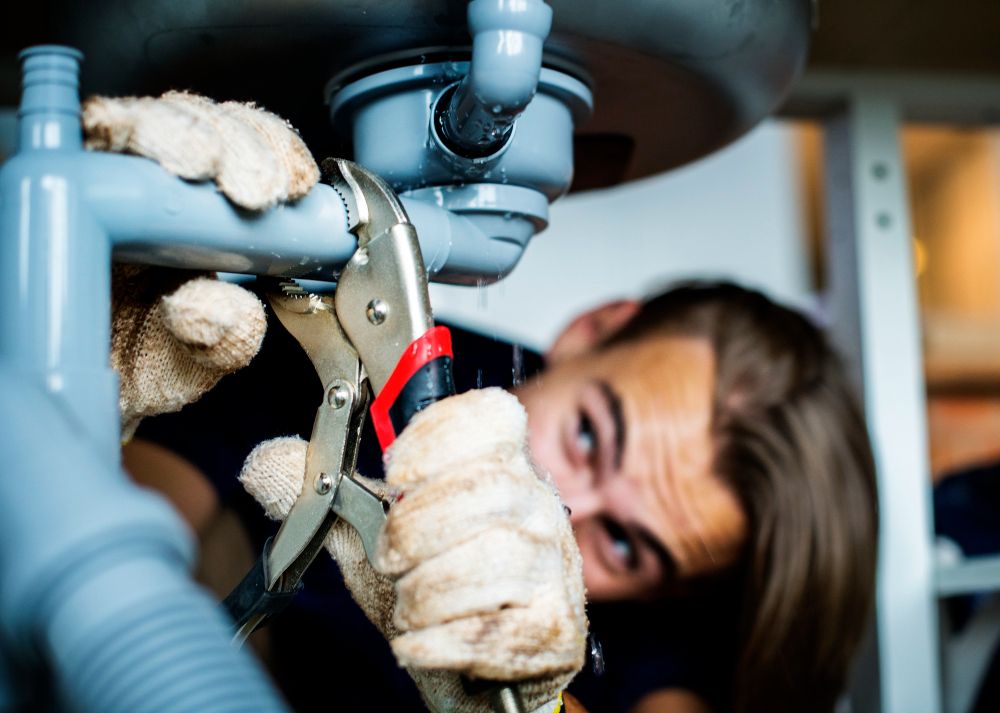
Licensing and Certification Requirements
Becoming a licensed plumbing contractor requires meeting specific requirements that vary by state and locality. Most states and some localities require plumbers to be licensed, and contractor licenses have additional requirements beyond basic plumber licensing.
According to the Bureau of Labor Statistics, although licensing requirements vary, states and localities often require workers to have 2 to 5 years of experience and to pass an exam that shows their knowledge of the trade before allowing plumbers to work independently.
General Requirements Across Most States:
- High school diploma or equivalent
- Completion of an apprenticeship program (typically 4-5 years)
- Several years of experience as a journey-level plumber
- Passing a state licensing exam
- Proof of insurance and bonding
- Business license or registration
Journey-Level vs. Master Plumber:
Most plumbers start by earning journey-level status after completing their apprenticeship and passing an exam. Journey-level plumbers are qualified to perform tasks independently. To become a plumbing contractor, many states require master plumber status, which requires additional years of experience and passing another exam.
| Level | Can Work Independently | Can Own a Business | Can Supervise Others | Licensing Required |
| Journey-Level | ✅ Yes | ❌ No | ⚠️ Sometimes | ✅ Yes (journeyman license) |
| Master Plumber | ✅ Yes | ✅ Yes | ✅ Yes | ✅ Yes (master license) |
State Requirements (e.g., Florida, California, Texas)
Licensing requirements differ significantly by state. Here are examples:
- Florida: In Florida, becoming a certified plumbing contractor requires passing the state exam and meeting experience requirements. The process involves documentation of work history and sometimes requires sponsorship from an existing contractor.
- California: California requires plumbers to be licensed by local jurisdictions rather than at the state level. Each city or county may have different requirements, though most follow similar patterns of required experience and examinations. Plumbing insurance in California is also essential for operating legally.
- Texas: Texas requires a plumber’s license through the Texas State Board of Plumbing Examiners. Contractors need both a plumber’s license and a contractor’s license to operate a plumbing business.
Before starting your journey, research your specific state’s requirements. You can find detailed information on how to get a plumbing license in 2025 for guidance on the licensing process.
How To Become a Plumbing Contractor
Ready to become a plumbing contractor? Follow these steps to build your career in this essential trade:
Complete Plumbing Training
Step 1: Complete Plumbing Training You’ll need a high school diploma and technical instruction, often through a trade school. The best training comes from apprenticeship programs offering hands-on learning and classroom instruction.
Step 2: Get Certified and Licensed After completing your apprenticeship, pass your journeyman exam. Later, you’ll qualify for your contractor license by gaining more experience and passing additional exams.
Step 3: Register Your Business Choose a business structure (LLC, sole proprietorship, etc.), get an EIN from the IRS, and open business bank accounts.
Step 4: Invest in Tools, Software & Insurance Essential tools include wrenches, cutters, pipe benders, inspection cameras, and a reliable work vehicle. You’ll also need:
Step 5: Build Your Client Network Use referrals, local marketing, business directories, and social media. Check out our tips on plumbing marketing.
Benefits of Working as a Plumbing Contractor
- Higher Income Potential: Contractors set their own rates.
- Job Security: Plumbing is always in demand.
- Independence: Be your own boss.
- Variety: Residential, commercial, or industrial jobs.
- Flexibility: Choose your hours and clients.
- Tax Benefits: Deduct tools, gas, equipment, and software. Learn more about small business taxes.
Tools and Software Every Plumbing Contractor Needs
Success as a plumbing contractor requires both physical tools and digital solutions:
- Pipe wrenches
- Saws and cutters
- Threading tools
- Power drills
- Inspection cameras
- Safety equipment
Software:
- Invoicing
- Scheduling
- CRM (Customer relationship management)
- Accounting and taxes
Professional tools help you stay organized, get paid faster, and make a great impression.
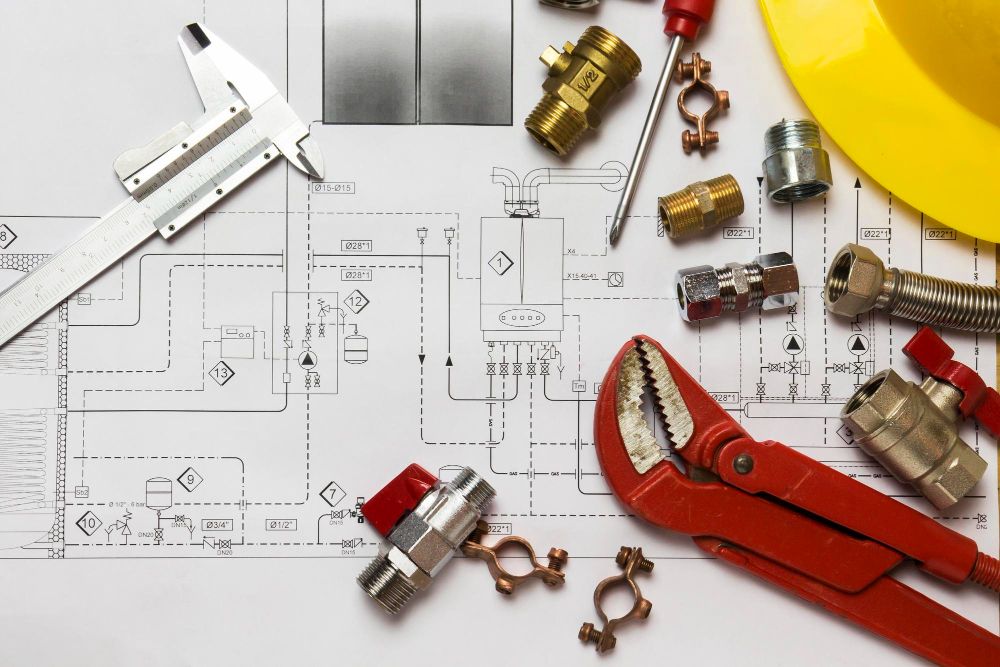
Final Thoughts
Becoming a plumbing contractor isn’t just about fixing pipes. It’s about building a skilled trade business that can grow with you. From residential repairs to large-scale commercial installations, plumbing contractors keep essential systems running. The path to becoming one takes time and dedication: apprenticeships, licensing, tools, and a strong work ethic. But once you’re licensed and running your own jobs, the opportunities are wide open.
The career offers more than steady income. As a contractor, you’re in control, choosing your clients, setting your rates, and deciding how to grow. Whether you want to stay solo or build a multi-truck business, it’s up to you. With steady demand, job security, and high earning potential, plumbing remains one of the most reliable trades in the construction industry.
Just remember: success in plumbing is equal parts skill, service, and systems. The contractors who thrive are the ones who not only do great work, but who also know how to run their businesses like pros. That means quoting jobs accurately, tracking invoices, following up on payments, and staying on top of taxes and insurance.If you’re ready to make that leap—from skilled plumber to licensed plumbing contractor—start setting up the business tools you’ll need. Use a free invoice template to get paid faster, or try Invoice Fly’s invoicing software to automate your billing and focus on what you do best: quality plumbing work.
Get Started with Invoice Fly’s Software
Invoice Fly is a smart, fast, and easy-to-use invoicing software designed for freelancers, contractors, and small business owners. Create and send invoices, track payments, and manage your business — all in one place.

Plumbing Contractor FAQs
A plumber may work for a company. A plumbing contractor runs a business and usually holds a higher license level.
Typically 7–10 years including apprenticeship, journeyman work, and licensing.
Startup costs range from $10,000–$50,000. Tools, vehicle, licenses, insurance, and marketing add up fast.
Yes. General liability, workers' comp (if you have employees), commercial auto, and tool coverage are common.
While employed plumbers average around $61,550/year, plumbing contractors can earn $75,000–$150,000+ depending on workload and overhead.
